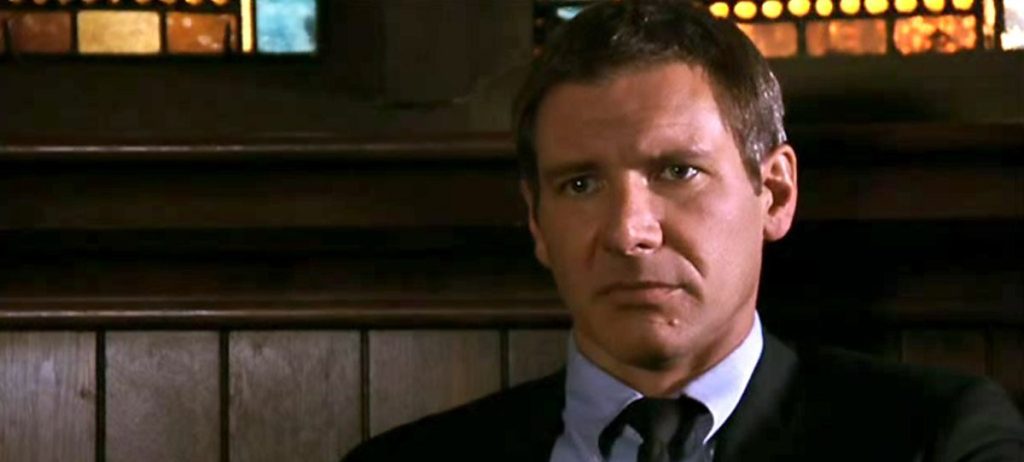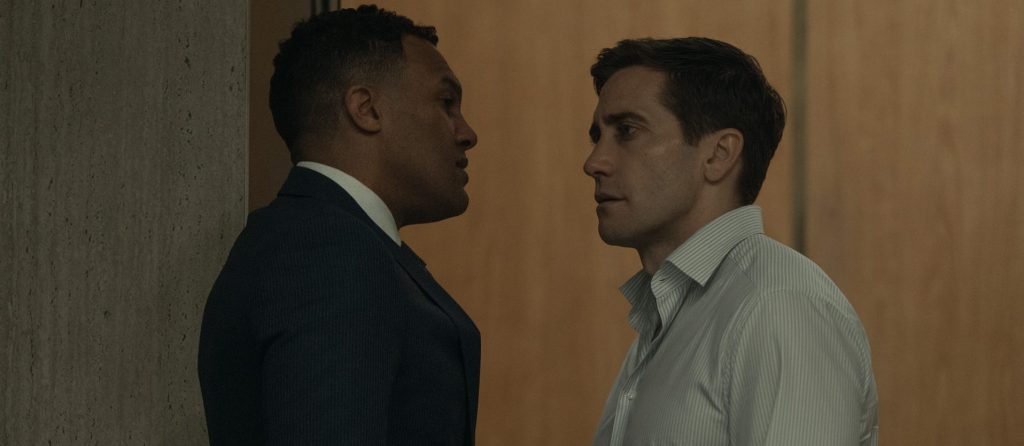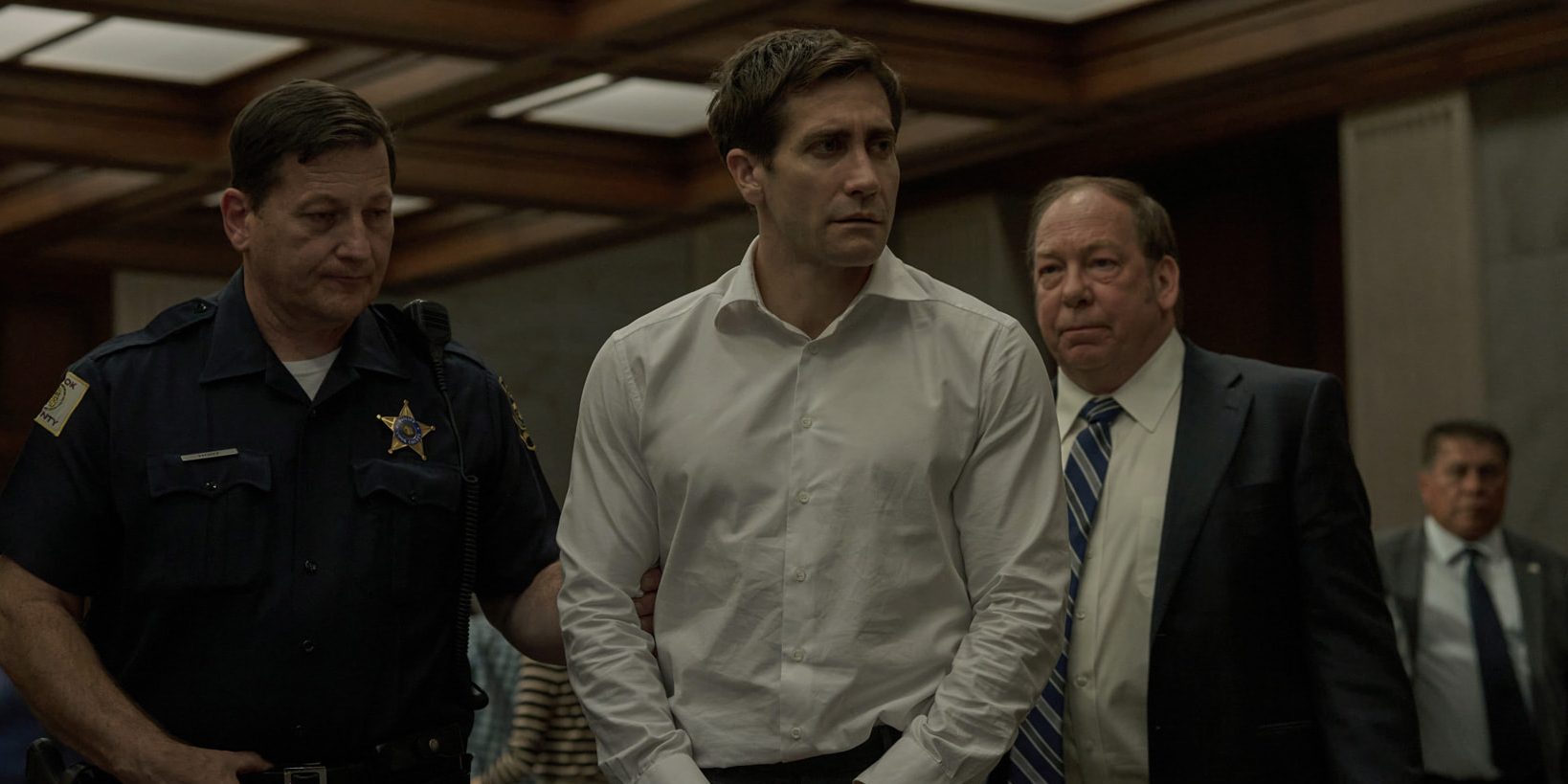Created by David E. Kelley, ‘Presumed Innocent’ depicts a messy legal affair revolving around a woman’s murder in which the prime suspect is her prosecutor co-worker. The story follows Rusty Sabich (Jake Gyllenhaal), a lawyer whose life is turned into a living nightmare when he is embroiled in the murder case of Carolyn Polhemus, an attorney colleague. Things get further complicated when the truth emerges that Rusty and Carolyn had engaged in an extra-marital affair not long before her death. With the investigation leading toward Rusty’s downfall and the evidence stacking up, he has to maintain his innocence while allaying the suspicions of others, including his wife.
The Apple TV+ show is an enthralling tale of love, lies, deception, and retribution. Carolyn’s murder, while initially set up as an isolated incident, has massive consequences attached to those around her. The livelihood and careers of people are upended in the search for the culprit. The narrative explores how pursuing justice can lead to existential struggles rooted in an ordinary person’s personal and private spheres. This is made all the more apparent in Rusty’s harrowing journey through legal hell as he battles to preserve his dignity and innocence. Naturally, the question may arise regarding the reality of his struggles and whether the show is based on a true story.
Presumed Innocent is Based on a Fictional Novel
‘Presumed Innocent’ is adapted from Scott Turow’s 1987 novel of the same name by Miki Johnson, David E. Kelley, and Sharr White, who wrote the script for the thriller series. While the narrative is fictional in its conception, the author drew from his own experiences as an attorney to craft the complex legal storyline involving Rusty Sabich. His legal career began as an assistant attorney in the Chicago attorney’s office, where he worked until 1986. Turow had a massive backlog of experience from his work in the legal community by the time he sat down to pen the eponymous novel. The story catapulted him to success, and in 1990, a feature film was made from his work under the same name by director Alan J. Pakula, starring Harrison Ford as Rusty Sabich.

When Pakula was handed the script for the motion picture adaptation of ‘Presumed Innocent,’ he was interested in exploring the sense of justice within the narrative’s themes. He spent a year rewriting the original script with screenwriter Frank Pierson. The director told Entertainment Weekly, ”Scott dealt with the most grotesque, lurid material — infidelity, kinky sex, murder. And he conveyed it in this disciplined, rational, one might say lawyerly way. I felt it was the tension between the cold, controlled prose and the heat of the events that made the book such a success. I’m looking for a cinematic counterpart to the prose experience.”
The story is wrapped in the animal intensity of passion between Rusty and Carolyn. However, to ensure the maximum focus was kept solely on the ideas hidden within the text, Pakula covered it with the weight of the murder resting on everyone’s conscience. However, when the film emerged in 1990, it deviated from the book in small ways. There were different variations of the ending conceived by Pierson, which were ultimately shelved for one closer to the one presented by Turow in his novel. Pakula maintained that the book was complex and full of flashbacks, which did not translate well to the film medium.
The Creator Delved Into His Legal Roots to Draft the Script
Along with co-writers Miki Johnson and Sharr White, creator David E. Kelley crafted ‘Presumed Innocent’ with more concrete roots tied to the 1987 novel. Kelley, like Scott Turow, has a background steeped in law. The creator practiced law in Boston for three years before moving into television production and writing. Like Rusty Sabich, he was intrinsically linked to the legal system’s efforts and how they maintained the scales of justice through moral and ethical resolutions. Although not explicitly linked to the inspiration behind the show, this has been a guiding principle in all his work, which has predominantly been confined to the realm of intricately constructed legal thrillers.

In an interview with Emmys, the co-writer-creator discussed his fascination with the law, “It’s society’s best effort to legislate moral and social behavior. It is very imperfect; it is very inexact. It’s fodder for a tremendous amount of debate — people tend to expose their values and character in the process of that debate. I always found that a joy to participate in, both as a student and as a layperson talking about the law.” In ‘Presumed Innocent,’ the imperfections he mentioned are laid bare in the long-winded and twisted battle to ascertain the truth. Hoops are jumped through, which leads nowhere and only adds to the confusion.
Kelley explores the messy and unedifying nature of deception, which underlies the legal process. As people are charged, their whole identity is questioned, examined, and brought to the limelight to be forensically dismantled by other people. This elaborate truth-seeking process was integral to the former lawyer’s drive to become a writer. “When I subsequently became a writer,” he continued, “I experienced the same joy — mining characters through their values systems and beliefs, the tightrope between what’s right and what’s wrong. Most of my shows have been character-based, but I’ve used the law as a springboard in a lot of those shows to really mine those characters.”
‘Presumed Innocent’ is a tightly-knit legal drama centered in Turow’s original novel. While legal procedures dominate the thread of the narrative, the exploration of Rusty’s internal conflict and struggles are carefully inspected through the guise of courtroom battles. The fight to maintain his innocence is a battle fought by many when charges are allayed without the confirmation of guilt. It is the assault on the psyche that becomes more pressing than court documents being passed around. As Rusty’s life crumbles from the accusations, the stark reality of his position is made abundantly clear. The show may not be real in the truest sense of the word, but its story is a cautionary allegory for all of us.
Read more: Best Lawyer and Courtroom Movies on Netflix


You must be logged in to post a comment.